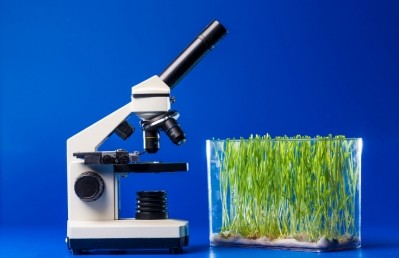EU crop research may be relegated to second tier status if GM restrictions remain, warn scientists

“If plant scientists cannot apply their knowledge for the benefit of society, Europe will be unable to lead in global efforts to build a sustainable agricultural system and plant-based bio-economy,” said the scientists, who are world-leaders in disciplines ranging from botany to ecology to molecular biology.
The signatories of the letter include experts from Germany, Switzerland, the UK, Austria, Netherlands, Belgium and Sweden.
They argue that the current EU "de facto moratorium on transgenic plant approvals has been detrimental for applied plant science and has effectively eliminated possibilities for publicly funded scientists and small companies to address the big challenges for society".
The scientists claim the resulting reduced competition has enhanced the dominance of major seed and agrochemical corporations and they are calling for a "fundamental revision of GM regulation... that strictly follows the principles of science-based evaluations and approvals".
They also warn that "in most European countries permits to perform field experiments with transgenic plants are blocked, not on scientific but on political grounds", and that where field experiments are permitted "these are often systematically vandalized, causing huge scientific and financial losses", hampering scientific efforts to tackle agricultural pests and respond to climate change.
Anti-GMO campaigners react
Liz O’Neill of the anti GM lobby group, GM Freeze, in reaction to the scientists’ communication, told us:
“Those working with GM regularly complain that crop approvals are ‘blocked by politics’ but social factors, justice and ethics are perfectly valid considerations in food and farming policy.
The GM crops currently queuing up for EU approval have all the same downsides as the ones rejected by the UK Government’s own Farm Scale Evaluations and we have a right to say that we don’t want to grow food in a way that harms wildlife or hands control over to a few patent holders.
We also need to invest more in agro-ecological approaches that work with nature and support the small-scale farmers who feed the vast majority of the world’s population.”
Industry ties
Stefan Jansson, from Umeå University in Sweden, who has coordinated the effort by the 20 scientists, says the academics do not have any links to industry.
But Claire Robinson, editor at another campaign group, GM Watch, begs to differ.
She told this publication at least two of the signatories have a conflict of interest, with David Baulcombe, from Cambridge University, she said, having worked as a consultant for the multinational biotechnology firm, Syngenta.
Professor Jonathan Jones of the Sainsbury Laboratory in Norwich is also founder of GM patent-holding company, Mendel Biotechnology, she added.
The open letter from the 20 leading plant scientists can be read here.












